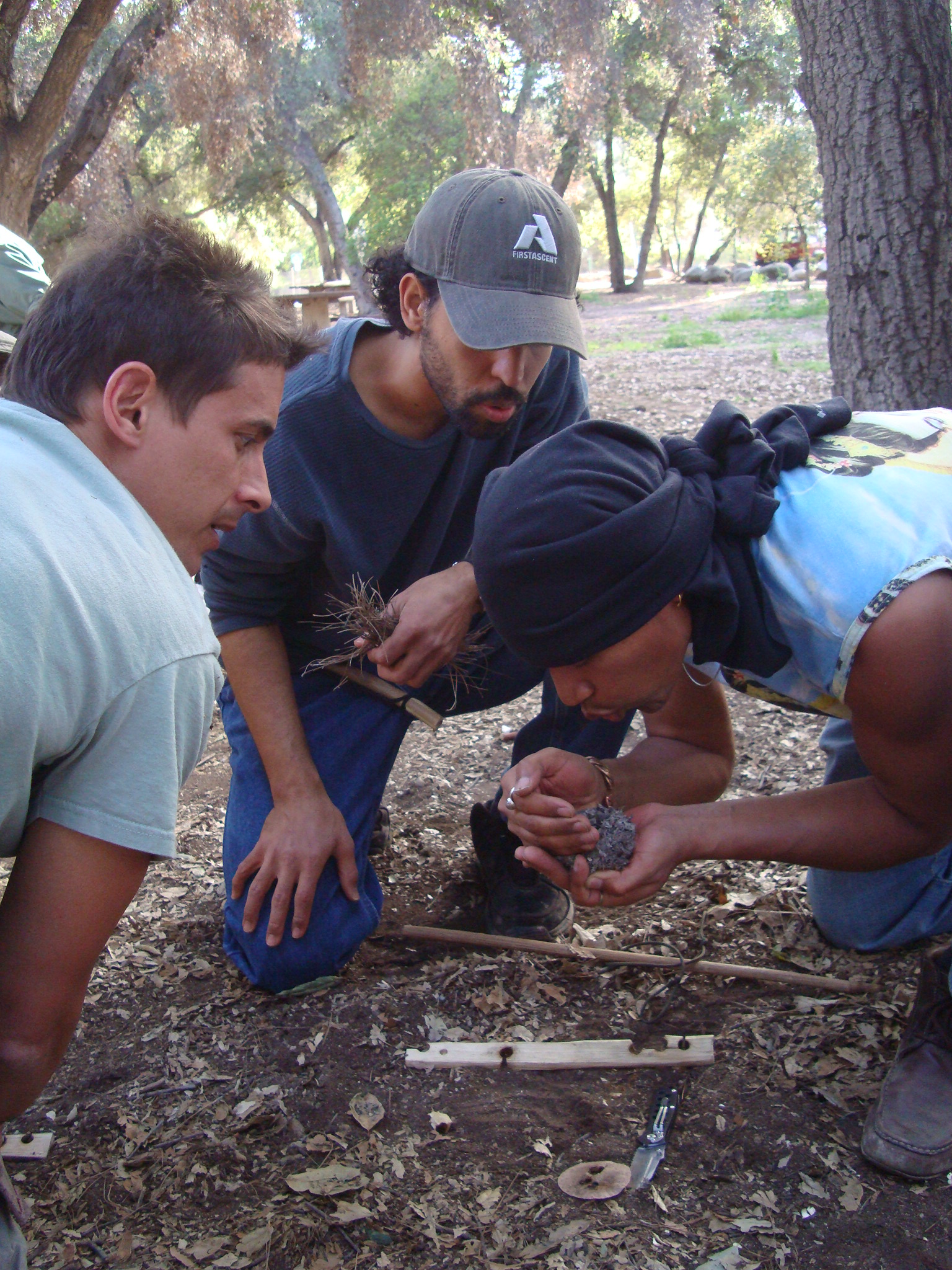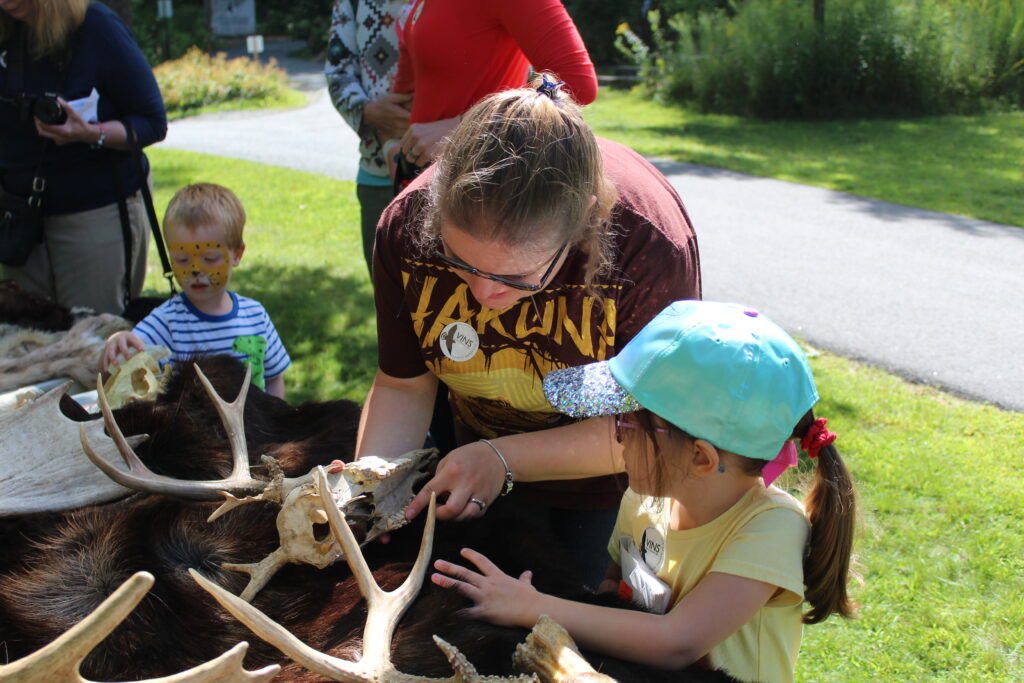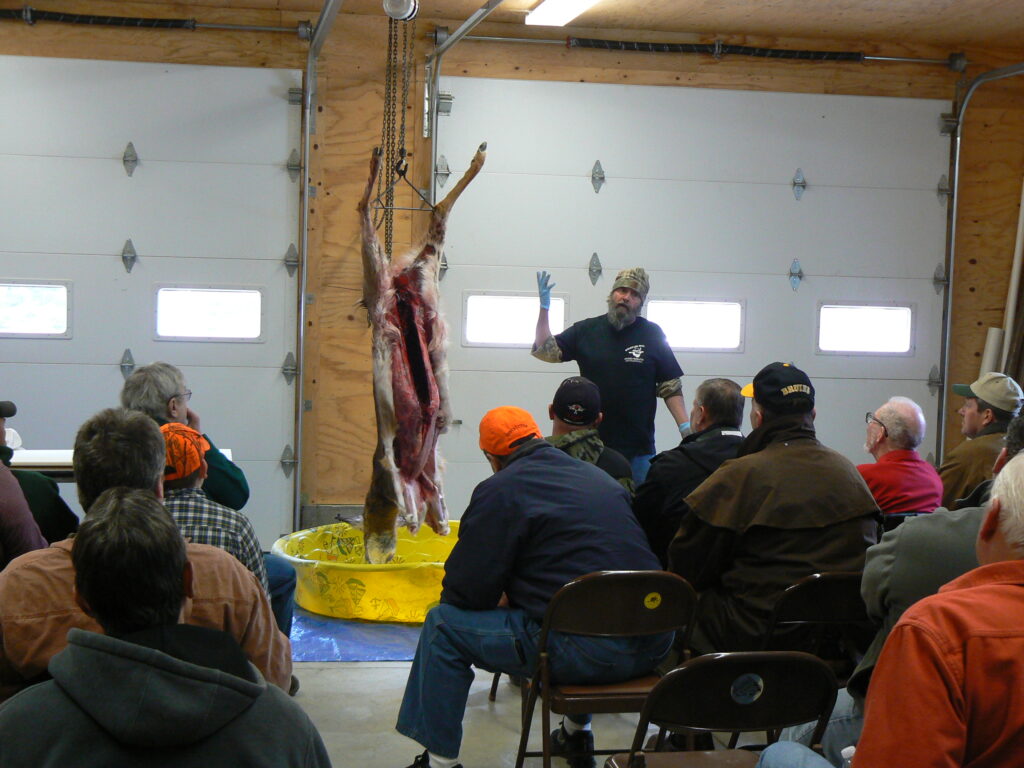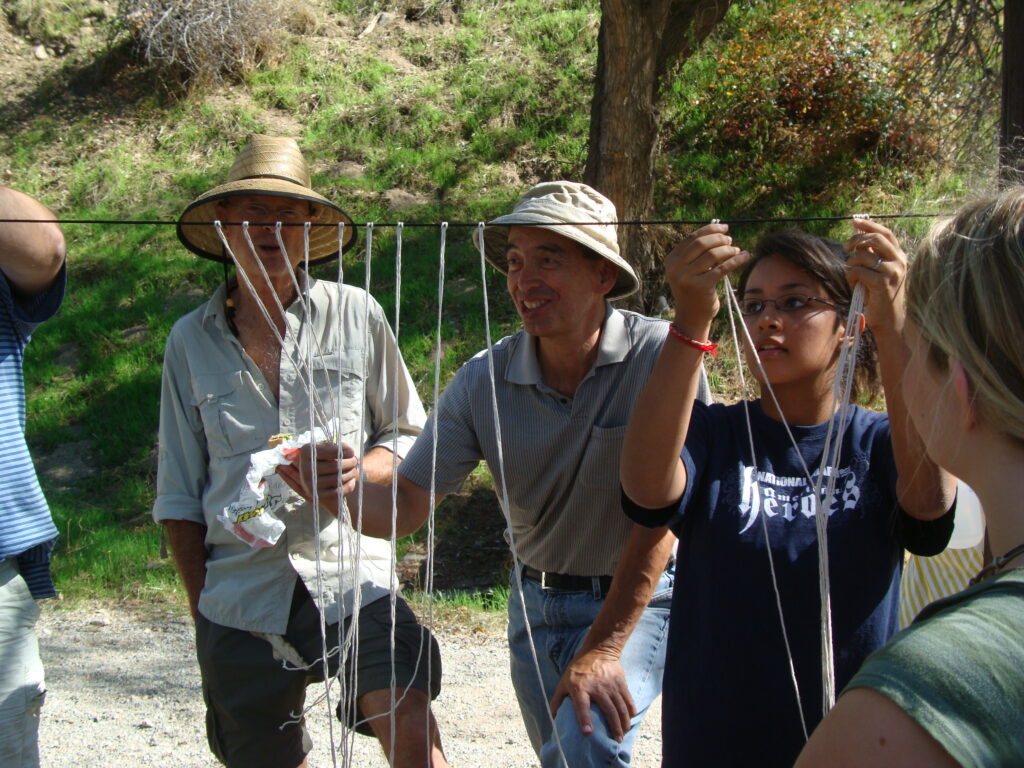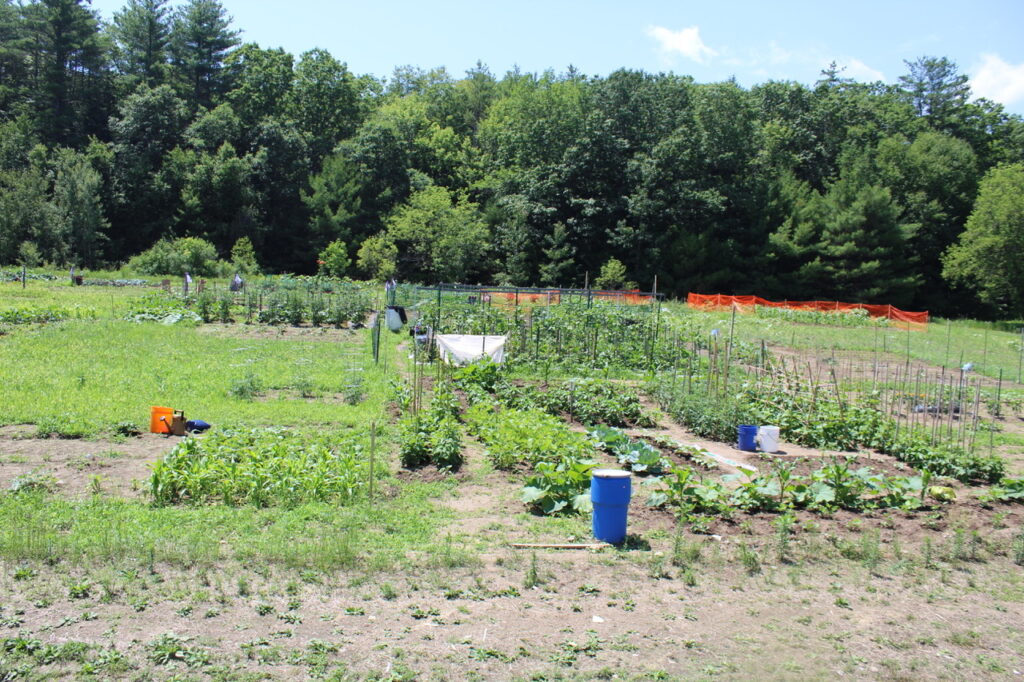By Dana Benner
We have all heard the phrase, “It takes a village to raise a child”. To paraphrase this saying, “It takes a team to stay alive”. Humans are social animals. We need each other to ensure survival. Our entire history has relied upon us being able to work together. Among indigenous peoples around the world, simple banishment from the community for criminal offenses was in fact a death sentence.
My daughter teaching my granddaughter about wildlife identification. Just one important skill she will need to know.
This idea of being a self-reliant person, who doesn’t need anyone’s help, is not a new one. In the 1800s man after man “headed for the hills” to seek their fame and fortunes running trap lines in the Rockies or striking it rich in the goldfields of the Yukon and Alaska. Even these endeavors required contact with “civilization” for needed supplies, whatever they may be. These adventurers faced starvation, frostbite, attack by bears, wolves and other humans. Often injury, even minor injuries, and illness meant death. There was no backup plan or support team close by. Without friendly human contact there was nobody to bounce ideas off of and depression was common.
This old WWII ammo depot near my home would be a great place for the team to meet in an emergency.
Today we have seemed to have forgotten all of this. The driving force is the desire for freedom and the “simple way of life”. Truth be known, the “simple way of life” isn’t so simple. Surviving is a constant struggle. If you are alone then you have to think about shelter, food, water, medical and sanitation. The time you use to improve your shelter (a must do) takes away from food gathering (hunting, fishing and foraging) and collecting and purifying water (both must dos). Having another person, or more, can lighten the load as well as giving a different perspective to tasks at hand.
This “Loner” attitude has been re-enforced by the never ending television programs that encourage people to go it alone. All you need is a high powered rifle, a big knife and a bucket of freeze-dried food, or so they tell you. Even if you have all the skills (many people don’t) and equipment, you will not last long on your own. Reading Jon Krakauer’s book Into the Wild will give you an idea of what can happen if you don’t have a good support team.
If you are alone, or refuse to ask for help, even the most minute illness or injury can be fatal. It should not be about “me” or “I”; it should always be about “we”. It can be done; we just need to lose the attitude. Don’t drink the Kool-Aid promoted by these programs. Remember those “survival” programs are meant to do nothing more than entertain. In front of the cameras it may look like the people are on their own, but behind the scenes there is a complete support team. Make sure you have a support team as well.
The Team:
The key to teamwork is to play upon the strengths of all members. In every group there will be those who excel in food gathering, data collection (electronics) and keeping things running (mechanics). There will be leaders and followers. A successful team needs a strong and capable leader. A good leader needs to be confident, but not cocky. They need to be smart enough to know what they don’t know and then surround themselves with people who do. A good leader listens to those he or she surrounds themselves with. Above all, a good leader recognizes that nobody knows everything and every member has something to offer the team. The bottom line is that you need to surround yourself with people that you can really count on.
Classes, such as this deer processing class, are important to attend as a team. By doing this everyone learns valuable skills.
Here are some steps to putting a team together:
- Know who you are working with:
Trust is the key here because you are literally putting your life in another person’s hands. If you can’t trust someone, then they shouldn’t be on your team.
- Set parameters:
From the start decide who the leader is going to be. Have a Chain of Command. While making decisions in council is good, someone needs to be in charge.
- Take advantage of people’s strengths:
If someone is really good with electronics, but weak when it comes to hunting, don’t task them with hunting. Use that person in a role they are good at.
- Teamwork makes dreams work:
Encourage the idea of working together. Share tasks equally. Nobody is above digging a latrine, cooking or policing the area. Cross-train everyone in case someone goes down with illness or injury.
- Be a leader, not a dictator:
Lead by example. Don’t ask anyone to do something you wouldn’t do.
Size Does Matter:
Common sense tells you that the larger the group, the more resources will be used. The size of the group, or team, that you assemble must be reasonable. You must not maintain a group that cannot sustain itself. The team must pool all available resources together. It can be food, water or medical supplies. Some will have more of these items than others. Some of your team may not have material items, but they may have the heart and willingness to work hard for the group. These are all things that need to be taken into consideration when forming your team.
Gather Information:
Everywhere I go, I ask questions. I’m constantly reading books With every question; with every book, I gather more information. I’ve learned survival tips from Native American Elders from Alaska, Arizona and the Dakotas. I’ve studied with Native Hawaiians, the Amish and old time loggers and fishermen in New Hampshire, Vermont and Maine. I pick the brains of experts in the field like Christopher Nyerges and Kevin Estela. These lessons I freely share with my team and with others. We can never know too much.
Training is essential. That can be done through organized classes or by doing research at home.
Students learning skills as a team. Photo courtesy of Christopher Nyerges
- Survival Courses:
There are literally tons of survival based courses out there and they are located throughout the country. Look into them. Learn the basics first. The advanced stuff can come later.
- Medical:
You can never have too much medical training. The American Red Cross and many fire departments offer CPR and Basic First-Aid courses. C.E.R.T. (Community Emergency Response Team) is another avenue to take. These courses are usually offered by your state and include first-aid training and emergency response for natural disasters.
Books:
There are many good books out there that deserve to be in your library for reference. Here are six that I feel are great to have.
- Into the Wild by Jon Krakauer.
This book tells you all of the things that can go wrong. Please read this one.
- Call of the American Wild by Guy Grieve.
This book tells the story about a man intending to do it on their own, but quickly realizes that he needs help. A good read.
- 101 Skills You Need to Survive by Kevin Estela.
Kevin Estela is one of the top experts in the survival world and this book gives you plenty of useful information.
- How to Survive Anywhere by Christopher Nyerges.
Christopher Nyerges is another expert that I turn to often. This book packs a ton of useful information that is easy to understand.
- Medicinal and Other Uses of North American Plants by Charlotte Erichsen-Brown.
A great book regarding medicinal plants that could prove helpful.
- The Survival Medicine Handbook by Joseph Alton, MD and Amy Alton ARNP,
This is my bible when it comes to survival medicine and is a must have in your library.
Conclusion:
The world can be a dangerous place during the best of times, but if you are in “survival” mode, it can be even more so. Don’t be a fool and try to go it alone. By banding together with people you trust, your odds of making it increase substantially.
Community gardens are a great place to meet your neighbors and possibly find members for your team.
Photo Credits:
Feature image – Team learning how to start fire. Photo courtesy of Christopher Nyerges
All other photos Dana Benner

